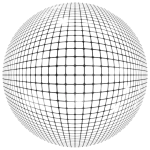Delta-8 THC, a synthetic cannabinoid, offers a milder high compared to Delta-9 THC found in cannabis. It derives from CBD and is known for relaxation, euphoria, and heightened senses with reduced anxiety. Similar to natural extracts like red maeng da kratom, it may stimulate creativity, enhance social interactions, and regulate sleep patterns. However, individual reactions vary, emphasizing responsible use due to its unique properties. While both Delta-8 THC and red maeng da kratom have therapeutic benefits, their legal statuses differ significantly; consumers must research thoroughly to make informed decisions while respecting the law.
Delta 8 THC, a synthetic compound mimicking the effects of cannabis, has gained popularity for its psychoactive properties. This article explores the unique aspects of Delta 8 and how it differs from traditional herbs like Red Maeng Da Kratom. We’ll delve into its potential impacts on the body, uncover legal considerations, and provide insights into navigating this emerging market. Understanding Delta 8 involves a closer look at synthetic compounds versus natural herbs, especially when comparing psychoactivity.
- Understanding Delta-8 THC: Unraveling the Synthetic Compound
- Psychoactive Effects: What Does Delta-8 Do to Your Body?
- Red Maeng Da Kratom: A Traditional Herb and Its Comparison
- Legal and Safety Considerations: Navigating the Current Landscape
Understanding Delta-8 THC: Unraveling the Synthetic Compound

Delta-8 THC, a synthetic compound gaining traction in the world of psychoactive substances, is a close relative to the more well-known Delta-9 THC found in cannabis. This novel compound has sparked curiosity and interest among users seeking alternative experiences, especially those with a preference for milder effects. Often compared to its counterpart, Delta-8 offers a unique set of attributes that set it apart.
The synthesis of Delta-8 THC involves transforming other cannabinoids, most commonly CBD (cannabidiol), into this particular form. This process allows for precise control over the compound’s properties, resulting in a product with distinct effects. Users report experiencing heightened relaxation, enhanced sensory perception, and a sense of euphoria without the intense anxiety sometimes associated with Delta-9 THC. Its popularity has even led to comparisons with natural extracts like red maeng da kratom, as both offer therapeutic benefits while providing a more manageable high.
Psychoactive Effects: What Does Delta-8 Do to Your Body?

Delta-8 THC, a synthetic compound derived from cannabis, offers unique psychoactive effects that differ from its more well-known counterpart, Delta-9 THC. While both interact with the endocannabinoid system, Delta-8 produces milder, less intense high. Users often describe feeling relaxed and euphoric without the overwhelming anxiety or paranoia sometimes associated with Delta-9. This subtle yet potent compound has gained popularity for its potential therapeutic benefits, much like red maeng da kratom, known for its pain-relieving and mood-boosting effects.
The experience induced by Delta-8 is characterized by heightened senses and a sense of calm. It may stimulate creativity and enhance social interactions, allowing users to enjoy activities more deeply. Some report improved appetite and better sleep patterns. Like red maeng da kratom, Delta-8 can provide relief from stress and anxiety, making it an appealing option for those seeking natural alternatives for mental well-being. However, individual reactions can vary, and responsible use is crucial to navigate the unique effects of this synthetic cannabinoid.
Red Maeng Da Kratom: A Traditional Herb and Its Comparison

Red Maeng Da Kratom, a traditional herb native to Southeast Asia, has been used for centuries in its natural form. This potent stimulant and pain reliever is derived from the leaves of the Mitragyna speciosa plant, known for its unique chemical composition. While Red Maeng Da offers various health benefits, such as reduced anxiety and pain management, it differs significantly from synthetic Delta 8 THC compounds.
Unlike Red Maeng Da Kratom, which activates specific receptors in the body’s endocannabinoid system, Delta 8 THC is a man-made cannabinoid that mimics the effects of its more well-known counterpart, Delta 9 THC, but with potentially less intense psychoactivity. This synthetic compound is created through chemical processes, allowing for precise dosage control, which can be particularly appealing to those seeking a milder high compared to traditional cannabis or Red Maeng Da Kratom.
Legal and Safety Considerations: Navigating the Current Landscape

The legal status of Delta 8 THC (Δ8-THC) products is a complex and evolving landscape, particularly when compared to its more well-known counterpart, Delta 9 THC. Currently, the United States Food and Drug Administration (FDA) has not approved Δ8-THC for any medical or recreational use, nor has it established clear guidelines on its safety and efficacy. This uncertainty leaves consumers vulnerable, as the quality and potency of Delta 8 THC products can vary widely.
Navigating this uncharted territory requires vigilance and research. What’s more, comparing Δ8-THC to natural compounds like red maeng da kratom is crucial. While both offer potential therapeutic benefits, their legal status and safety profiles differ significantly. Understanding these nuances is essential for consumers to make informed decisions, ensuring they access products that meet their needs while adhering to the law.
Delta-8 THC, a synthetic cannabis-like compound, offers unique psychoactive effects distinct from its more well-known counterpart, Delta-9 THC. While legal considerations and safety concerns remain dynamic, understanding the potential of this novel substance—especially when compared to traditional herbs like Red Maeng Da Kratom—is crucial for informed decision-making. Further research is needed to unlock the full potential of Delta-8 while ensuring responsible usage, providing a promising avenue for those seeking alternative experiences in today’s evolving market.






